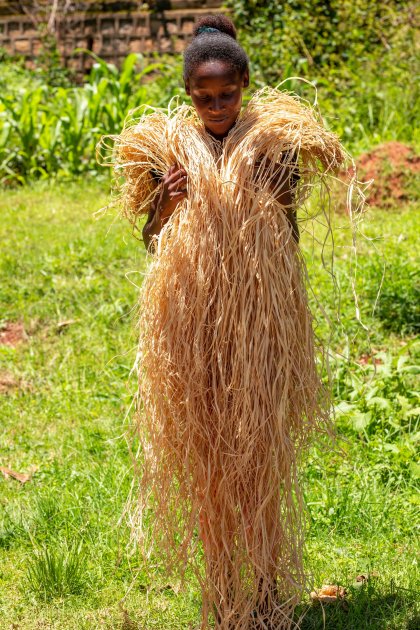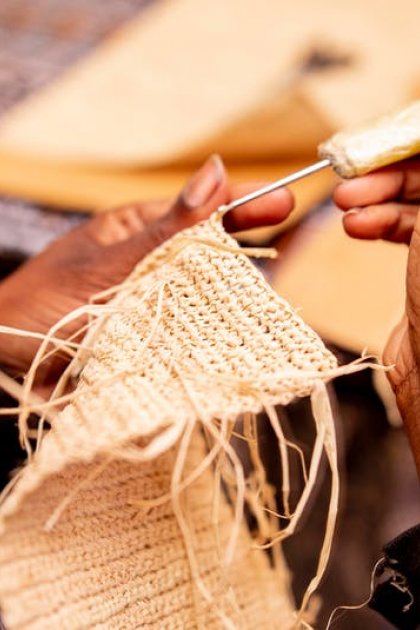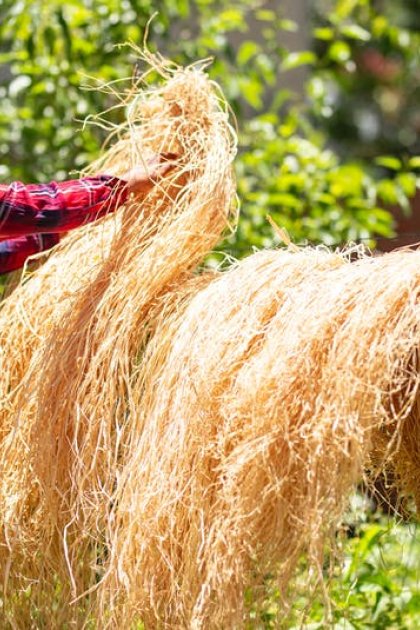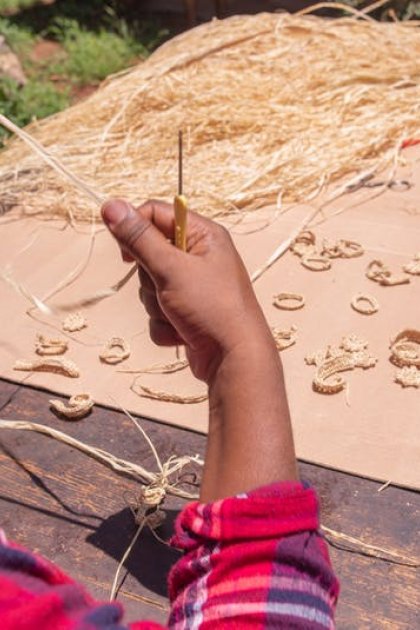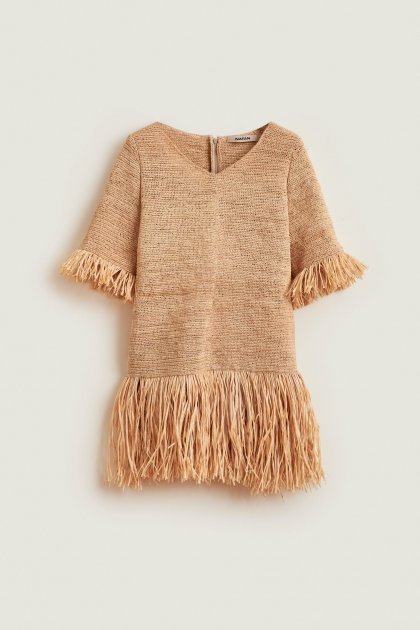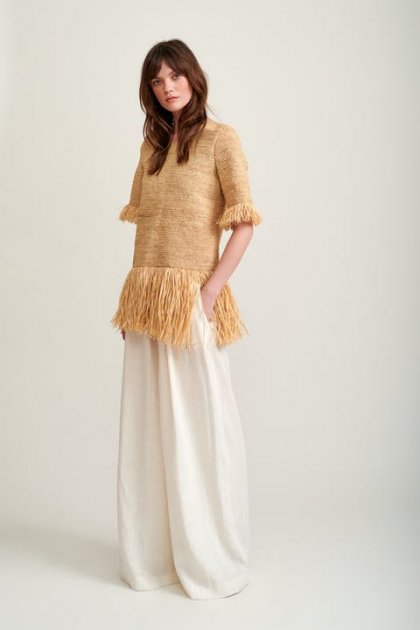Sustainability
Circular Fashion
At Natan, we believe in creating beautiful garments without compromising on integrity. Originality and ethics sit equally in our brand philosophy.
We are constantly improving to make all areas of our business more sustainable. In 2020 we introduced a new organic, plant-based and environmentally-friendly leather made from Nopal Cactus in our couture collection. We made it our responsibility to contribute into reversing fast fashion and evolving towards a fully sustainable brand. Reinventing the Natan archive by giving pieces from previous collection a new purpose and reinterpreting stock fabrics is part of our goals.
At Natan we care deeply about the lives of the people involved in the production of our collections. Our small-scale, humane and intimate philosophy we apply on all layers of the company and beyond. The Belgian Natan ateliers we consider the heart of our business and invest into maintaining in-house knowledge on a daily basis. Our external factories, all set in Europe, we approach with the same integrity and loyalty. Building personal and long-lasting relationships is part of our core values and ideology. We are endorsing all shop-local activities and keep encouraging all our customers and business partners to follow our intended path and movement.
Raffia
The Akra social project is committed to supporting artisan communities in Madagascar, Brazil and Peru, empowering women to live off their skills and be independent in their daily lives and in the education of their children. Akra, which has been present in the European market for more than a decade developing high-quality products for major luxury and ready-to-wear brands, contributes to improving the well-being and development of women's communities in Africa and Latin America. Samuray Martins, the company founder and based in Belgium, explains: “Our unique techniques provide income alternatives for hundreds of families. The main objective of the Akra project is to revitalize the use of natural fibers, which have been replaced by synthetic materials and leather, and above all to revalue craftsmanship. The all-natural handbags and accessories are made exclusively from local Brazilian fibers, sourced from burito and piassava palm trees. These fibers are sustainably harvested from local plantations and then delivered to artisans in small communities along Brazil's northeast coast, using traditional braiding and macramé techniques developed exclusively in Brazil. Akra used natural raffia fibers to collaborate with Natan. This 100% organic fiber is carefully sorted by the craftsmen and then dyed with natural pigments. This ethical material chosen for this collaboration is extremely flexible, making it just as easy to crochet as wool. The raffia handbags and garments designed for the Natan x Akra capsule collection are made in the communities of the Akra project in Madagascar. This initiative supports income generation, employment and education for the development of a socio-economic enrichment network. The Akra project indirectly employs about 800 artisans.
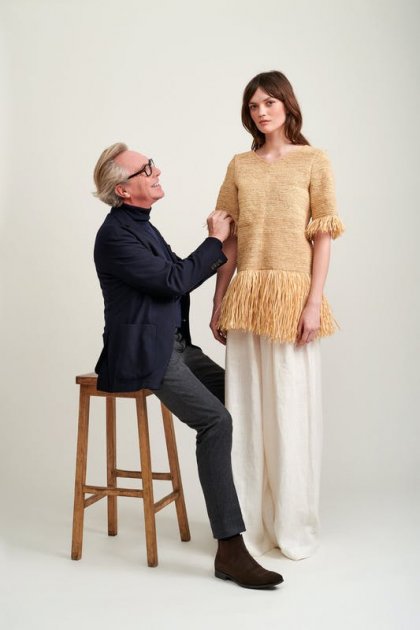
Vegan leather
Aware of the environmental impact that leather has on the environment, Natan is introducing a new type of vegan leather developed from cactus in its collections. A new concept that was born in Mexico, bearing the name of Desserto. It is an alternative for the fashion world both for the environment and for animal welfare. An abundant plant in Mexico, cactus does not require a lot of water or maintenance with herbicides or pesticides. The fact that it contains a protein with natural waterproof and adhesive properties makes it even more interesting to work with. The feel on the skin, look and touch surprised our clients, as it has a look & feel of real leather.
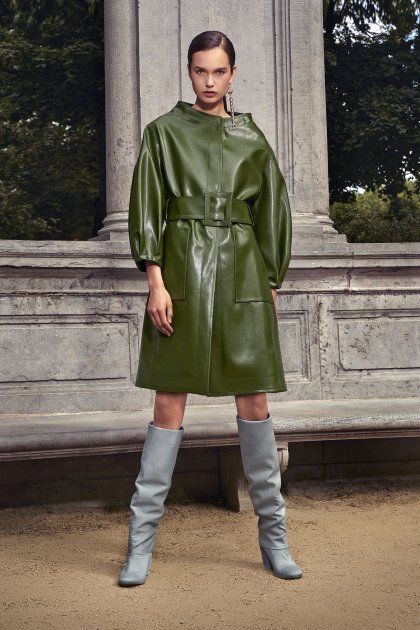
HYPECHASE X Natan
A pullovers and hats are the result of a collaboration between Natan and HYPECHASE. It is a sustainable and socially responsible production of cashmere sweaters in Mongolia. The goats in Mongolia live in the wild and offer an excellent quality of cashmere yarn. It is a handmade production process, from cutting the hair to the final manufacturing of the sweaters and accessories.
Hypechase's mission:
- Creating jobs locally for people in difficult situations
- Minimizing waste in the "zero waste" fashion sector
- Not using chemicals
- Saving energy to produce new fibers
- Avoiding the discharge of dirty water and the consumption of clean water
- Not using dye

